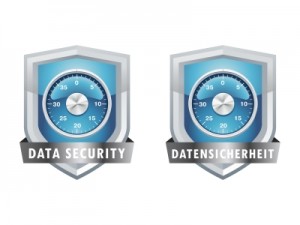 Big Data is everywhere; it is growing fast and is the next big thing touching everyone’s lives.
Big Data is everywhere; it is growing fast and is the next big thing touching everyone’s lives.
Big data can be defined as huge amount of structured and unstructured data from a variety of sources that cannot be processed using traditional data processing tools and techniques. Big data may be volume based, velocity based or variety based. In the first type it can be unstructured data generated by sensors. In the second, velocity driven data, it is usually sensors and RFID devices that deliver continuous streams of data that need to be managed in real time to derive meaningful results from the analyses. Then there is variety driven big data that can be generated from diverse sources such as audio, stock prices, text documents, emails and online transactions, to mention only a few. Another characteristic of big data is variability of data flow rates as well as complexity. A large amount of data may be generated containing essentially few parameters or there may be complex variable data parameters.
Big data necessitates complex, parallel processing power and sophisticated software to handle such simultaneous processing across nodes. Hadoop is one such solution to handle big data, weed out unnecessary information and extract essential data that helps decision making for better services, product development, cost reductions or even identify causes of defects or carry out optimization in addition to a host of other applications.
Learn About what is Big data Here
Big data will be at the core of all operations in business, retail, industry, transport, logistics and healthcare to improve competitiveness and create value. It enables organizations to store huge amounts of data after analyses and categorization in a usable way. Information becomes more transparent and purposeful in aiding management decisions. Big data lets businesses accurately classify customers and deliver customized services. Just as it is helpful in decision making to improve current products and services, it is equally helpful in developing products and services.
Given this scenario, there are a few things you must know about big data, its importance and applicability now and in the future.
- Recognize and accept the inevitability of big data intertwining all business operations and welcome new technologies that will enable you to exploit its power as a way to give customer satisfaction and deliver better products.
- Given that big data is entirely different from normal data, CEOs need to think of new technologies and service providers who specialize in this segment and can offer meaningful services.
- Big data can arrive from social media, from log files, from emails, from sensors, from point of sale machines or just about anywhere. Relevancy and exploiting it in time with technologies and services in place gives you an edge. While Hadoop is an obvious choice, it is not the only one. SAP’s Hana is another tool as are Arcplan and NoSQL. You will also be looking at a large number of servers tied through a node to process big data.
- Just as hardware and software capabilities are important to transacting big data, you will also need people with special big data analyses skills and people to handle the hardware setup in a situation similar to supercomputer lineup.
- Big data can simply be accumulated and then analyzed on specific points, which means you do not need to plan beforehand but can develop targets and objectives as you go along. By itself, big data acquisition is not of much use unless you have specialists to analyze data, find relevance and extract results that will generate value and improve the bottom line.
Awareness leads to acquisition of knowledge, a precursor to action that will generate results. Knowing about big data and then being prepared will give organizations a competitive edge now and in the future.
Image courtesy of nirots at FreeDigitalPhotos.net

